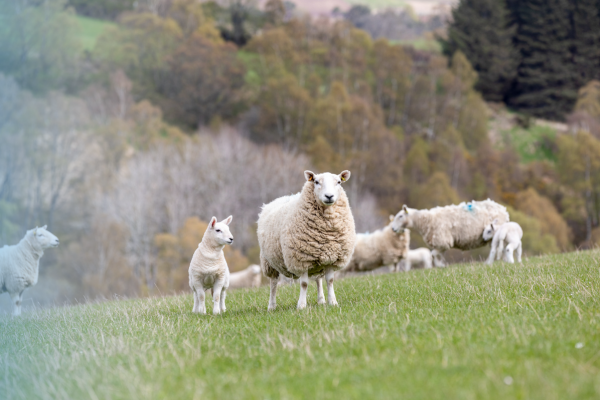Bluetongue Virus Update
31 July 2025As of 30th July, according to the Ruminant Health and Welfare website, there have been seven cases of Bluetongue virus (BTV)-3 identified in England this vector season (2025-2026). These have either been detected on premovement tests in cattle, or in sheep showing clinical signs which include nasal discharge, a sore swollen mouth with ulcers and generalised facial swelling. One case was detected in Cumbria on a premovement test.
Bluetongue is spread by midges. The midge becomes infected by biting an infected animal. The virus then needs to develop in the midge, which is temperature dependent. At 20∞C, it takes around 5 days which means the warmer temperatures of late summer and autumn will enable the virus to move from animal to animal much quicker.
All of England has been in a restricted zone since 1 July. If you want to move animals from a BTV-3 Restricted Zone to Scotland, you need a movement licence issued by APHA. Alternatively, cattle that have had a primary course of vaccination with Bultavo-3 at least 21 days prior can move to Scotland without a blood test, but they still need a licence issued by APHA. Details can be found here: Bluetongue movement restrictions for animals – Bluetongue: how to spot and report the disease – gov.scot
Vaccination is the best way to protect your stock against Bluetongue. There are three vaccines available on a special import licence that can be ordered from your vet. The current data suggests that the proportion of Scottish livestock that have been vaccinated to date is still quite low, which means a large proportion of the national herd and flock is susceptible to the virus.
Bluetongue Virus – Ruminant Health & Welfare The Bluetongue virus (BTV) hub is an excellent source of information and updates on BTV. Please consult this for more detail.
Alwyn Jones, SRUC Vet Services, Alwyn.Jones@sac.co.uk
Sign up to the FAS newsletter
Receive updates on news, events and publications from Scotland’s Farm Advisory Service

